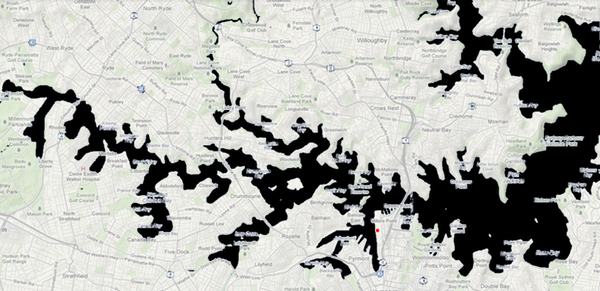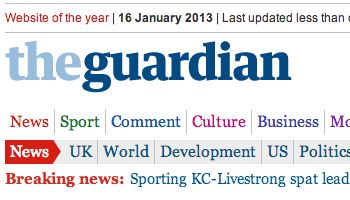Wotif is, undoubtedly, an Australian internet success story. But that doesn’t mean its founder Graeme Wood’s opinions about the future of the internet are worth listening to.
Wood spoke at the 21st World Computer Congress in Brisbane yesterday and, as Fairfax reports, he said this about the National Broadband Network:
If all you do is download the same stuff — only faster — how can you justify that as an investment?
If the mix of the normal usage — email, music, video, Facebook, gaming, stays the same, but just happens faster — is there an economic or social benefit in that for the private user?
See that “if” part? His whole critique is based on the premise that if you have broadband a hundred times faster that what anyone has now, there still wouldn’t be any new applications. Really?
All arguments depend on their assumptions, and at least we can credit Wood for pointing out what his assumptions are. But his assumptions are crap and should be ignored.
If the moon were made of something different and were a different colour, then it would be green cheese. But it’s not.
If vastly faster bandwidth were available then new things do become possible. The fact that you, Mr Wood, can’t think of them isn’t a critique of the NBN. It’s a critique of your limited imagination. Or, even if you have no imagination yourself, your inability to stay in touch with the people sketching out those future applications.
Let’s invert that and go back a few years to the mid-1990s. Instead of the 10Mb/s or more ADSL2+ connections that suburban homes have now, and that most regional users still dream of, we have 56kb/s dial-up links.
Remember 1995? No VoiP telephony, unless there’s no-one else using the internet link. No Skype. No video chat. No AJAX-based software as a service — including Wotif’s own rich interface for booking hotel rooms. No streaming video from the ABC’s iView. No waiting for rich, graphics-filled web pages for news sites. No YouTube. Sure, there were MP3 files, if you were prepared to wait half an hour for each one. Waiting hours to download your monthly Windows updates.
And everyone else in the home waiting until you finish, so they could have their turn.
Wood would be there, saying, “If the mix of the normal usage — email, Gopher, FTP downloads of a text file, web surfing to GeoCities stays the same, but just happens faster — is there an economic or social benefit?”
Of course there is. Even with no new applications, everything happens faster. So everyone can consume faster. Generate profits faster. Do work instead of waiting for software to download.
That someone who purports to be an entrepreneur on the internet has forgotten all this so quickly is appalling.
Thank you for playing, Mr Wood. Now fuck off.
![]() The ructions at new media outlet The Global Mail have been in the media a bit, from Matthew Knott’s damning piece at Crikey to my own whinge, Sydney Harbour “giant gambling den” bullshit reportage.
The ructions at new media outlet The Global Mail have been in the media a bit, from Matthew Knott’s damning piece at Crikey to my own whinge, Sydney Harbour “giant gambling den” bullshit reportage.


 I thought I’d be too busy today to pay much attention to the new quality Australian news outlet
I thought I’d be too busy today to pay much attention to the new quality Australian news outlet